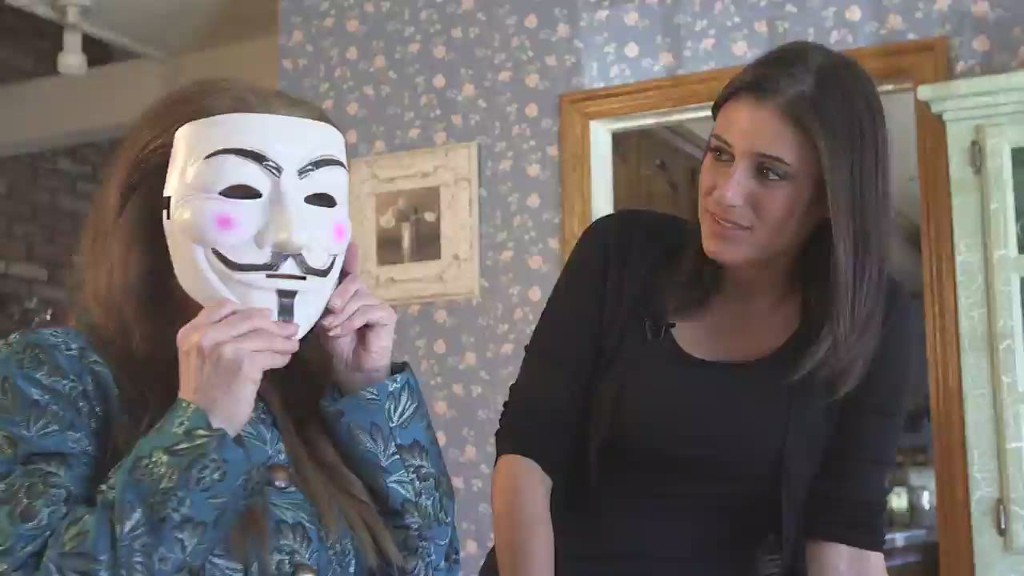
Imagine staying up all night looking for naked pictures of yourself online. Not because you're a porn star, but because a crazed ex has posted images you once shared in confidence all over the Internet.
Revenge porn, or non-consensual pornography, is a growing form of cyber-bullying. The photos typically end up on sites devoted to shaming women.
But the law protecting victims of revenge porn is lagging behind, leaving many women with few tools to fight back. Victims do have one surprising option: Corporate law firm K&L Gates.
K&L Gates takes on revenge porn cases as part of a pro bono initiative called the Cyber Civil Rights Legal Project.
And the clients are pouring in.
"[The demand] has been oddly very large for this," said attorney Elisa D'Amico, who co-founded the project last fall. "We've talked to over 200 victims from all across the United States, the U.K., Sweden, Latvia, Tunisia ... the Philippines."
It can be gruesome work: The attorneys working these cases have seen some images they'd rather forget.
The 50 or so lawyers involved in the project have been inundated with calls. Right now, the initiative has 75 clients either signed up or in the queue. Many victims don't want to come forward.
"A lot of times, victims have the feeling that, 'I've just been exposed, I mean literally exposed, flayed out for everyone to see. Why am I going to go expose myself even more?' They don't want to go talk to the police. They don't even know lawyers are around to help them," D'Amico said.
Revenge porn victims run the gamut in terms of age. D'Amico said her clients range from age 15 to their early 50s. In one instance, the firm represented a mother and her daughter. Some victims are dealing with pictures posted by a scorned ex, while others have found images online that had been surreptitiously recorded.
As tricky legal situations go, revenge porn is up there: Only 17 states have criminalized it, and attempts to pass legislation are sometimes challenged by First Amendment advocates who fear the laws could curtail free speech.
In the absence of criminal prosecutions, the firm's lawyers help victims in other ways.
They typically start by filing take-down notices under the Digital Millennium Copyright Act or suing for copyright infringement.
The lawyers try to wrestle copyrights to the offensive images away from the photographers. That's because under copyright law the photographer, not the subject, controls the images.
"If you're not the photographer, you're just the model ... you have no rights in them at all," said Dave Bateman, the Cyber Civil Rights Legal Project's other co-founder.
Bateman and D'Amico started the project after realizing that revenge porn touches on many different legal issues the firm could help tackle: intellectual property, Internet law, cyber forensics and data protection. The firm has outposts around the world that pitch in if harassment crosses borders.
The most surprising thing D'Amico said she's found is how many revenge porn victims are looking to try to turn the harassment into something positive.
Quoting one client, a college undergraduate, D'Amico said: "Because I've gone viral ... I'm ready to speak out to show that it's not just stupid people. It can happen to really intelligent people that made a bad decision."
Revenge Porn: The Cyberwar Against Women
Revenge porn victim: My naked photos were everywhere
Revenge porn hacker: 'Scary how quickly I would drop my morals'
To fight revenge porn, I had to copyright my breasts
Reddit: We won't tolerate revenge porn - and neither should you
Blackmailers trade nude pics like baseball cards on the 'dark web'


